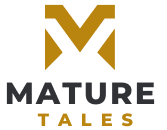Can Blockchain Technology Enhance Transparency in UK’s Food Supply Chain?

In the world of today, where data and information play a significant role in decision-making, transparency in the food industry is crucial. As consumers, you are more conscious about what you consume and where it originates from. Traceability and safety of food products have become a paramount concern. One technology that promises to revolutionize this aspect of the food industry is blockchain. This article delves into the potentiality of blockchain in enhancing transparency in the UK’s food supply chain.
Blockchain: A Revolutionary Technology
Before we explore how blockchain can impact the food industry, let’s first understand what it is. Blockchain is a decentralized, digital ledger that records transactions across multiple computers. It allows for complete transparency and traceability, making it nearly impossible to tamper with the data. The adoption of such a technology in the food supply chain can lead to unprecedented improvements in trust, transparency, and safety.
A découvrir également : How to Create an Effective Cyberbullying Prevention Strategy for UK Schools?
The use of blockchain in the food industry is not a new concept. It has been progressively adopted across the globe, with companies and sectors realizing its potential for providing transparency and reliability. The technology’s capacity to provide real-time traceability of food products, right from farm to fork, has sparked interest in the UK food sector.
Improving Transparency in the Food Supply Chain
Transparency is a critical aspect of any supply chain, more so in the food industry. As consumers, you need to trust the food you consume. Blockchain technology can offer this trust by providing a transparent, tamper-proof system.
A lire aussi : What Are the Key Factors in Designing Inclusive Playgrounds in the UK?
In a blockchain-based food supply chain, every entity involved, from farmers to retailers, inputs data into the blockchain system. This data can include details such as the origin of the product, who handled it, when it was harvested, how it was transported, where it was processed, and how it made its way to the store.
By having all this data stored on an immutable ledger, consumers can easily track the food products’ journey. This transparency not only builds trust between consumers and food providers but also ensures that all parties in the supply chain are accountable for their actions.
Blockchain and Food Safety
Food safety is another critical aspect where blockchain can bring about a massive change. The technology’s inherent traceability feature can help quickly identify the sources of contamination or disease outbreaks.
In a traditional supply chain, tracing a food item back to its source can take days, if not weeks. However, with blockchain’s real-time data capturing and management capabilities, this can be reduced to seconds. This swift tracing will allow for quicker responses to food safety incidents, potentially saving lives and reducing wastage.
Furthermore, the transparency provided by blockchain can also discourage unethical practices in the food industry. Producers and suppliers will be less likely to cut corners with food safety standards, knowing that their actions are recorded and can be traced back to them.
Adoption of Blockchain in UK’s Food Industry
While the potential benefits of blockchain in the food supply chain are significant, its full adoption in the UK’s food industry is still in the early stages. However, several pioneering companies have begun experimenting with the technology.
For instance, some UK-based supermarkets have started using blockchain to track the journey of pork from China, and beef from Ireland. This initiative, although in an initial phase, demonstrates the scope of blockchain technologies in enhancing transparency and trust in the food supply chain.
Similarly, the Seafood chain in the UK is also leveraging blockchain to ensure the provenance and quality of its products. It offers an excellent example of how blockchain can be used to combat fraud and malpractice in the food industry.
Challenges and Future Perspectives
Despite the promise that blockchain holds for the food supply chain, challenges in adoption and implementation persist. These include technological barriers, lack of understanding, and resistance to change. Also, the fact that the technology is still developing means that regulatory and standardization issues need to be addressed.
However, with increasing consumer demand for transparency and improved food safety, the adoption of blockchain in the UK’s food industry will likely continue to grow. As the technology matures and its benefits become more evident, we can expect to see more widespread and innovative uses of blockchain to enhance transparency and trust in the food supply chain.
It’s essential to remember that while blockchain can provide the tools for transparency and traceability, its success will ultimately depend on the willingness of all parties involved in the supply chain to adopt and utilize these technologies.
Case Studies: Successful Implementations of Blockchain Tech in the Food Supply Chain
The practical applicability of blockchain technology in enhancing transparency in the food supply chain can be better illustrated with real-life examples. Several companies worldwide, including in the UK, have successfully adopted blockchain technology to boost transparency and trust in their food supply chains.
Provenance, a UK-based startup, is one such example. The company has created a blockchain-based platform that allows consumers to trace the journey of a product from its origin to the store shelf. The pilot project involved tracking tuna from catch to consumer, providing consumers with real-time, verifiable information about the source, quality, and sustainability of the product. This project demonstrated how blockchain can enhance transparency and traceability in seafood supply chains.
Another notable example is the adoption of blockchain by Walmart. The retail giant has partnered with IBM to create a blockchain-based food traceability system. This system was put to the test during the 2018 E.coli outbreak linked to romaine lettuce in the US. Using blockchain, Walmart was able to trace the contaminated product back to its source within seconds, as opposed to the days or even weeks it would have taken using traditional traceability systems.
These case studies highlight the real-world benefits of implementing blockchain in the food supply chain. By providing a tamper-proof, real-time record of the product journey, blockchain technology can significantly enhance transparency and traceability, thereby boosting consumer trust and confidence.
Conclusion: Looking Forward with Blockchain in the Food Supply Chain
The adoption of blockchain technology in the UK’s food industry is still in the nascent stages. Yet, the potential it holds for enhancing transparency and trust in the food supply chain is immense. As blockchain technology continues to mature, its applications in the food industry are expected to expand, leading to more innovative uses.
However, the implementation of blockchain is not without its challenges. Overcoming technological barriers, resistance to change, and regulatory hurdles are necessary steps towards universal adoption. For blockchain to truly revolutionize the food industry, collaboration and cooperation across all levels of the supply chain are vital.
Ultimately, it’s not just about the technology itself, but rather its adoption and utilization. Blockchain provides a set of tools that, when used effectively, can bring about significant improvements in transparency, traceability, and safety in the food supply chain. But the onus of their implementation lies with the stakeholders in the supply chain, from farmers to retailers.
As consumers continue to demand greater transparency and safer food, the adoption of blockchain technology in the UK’s food supply chain is more than just a trend – it’s a necessity. With the promise of secure, tamper-proof, and real-time data, blockchain technology possesses the potential to redefine trust and transparency in the UK’s food industry – from farm to fork.
